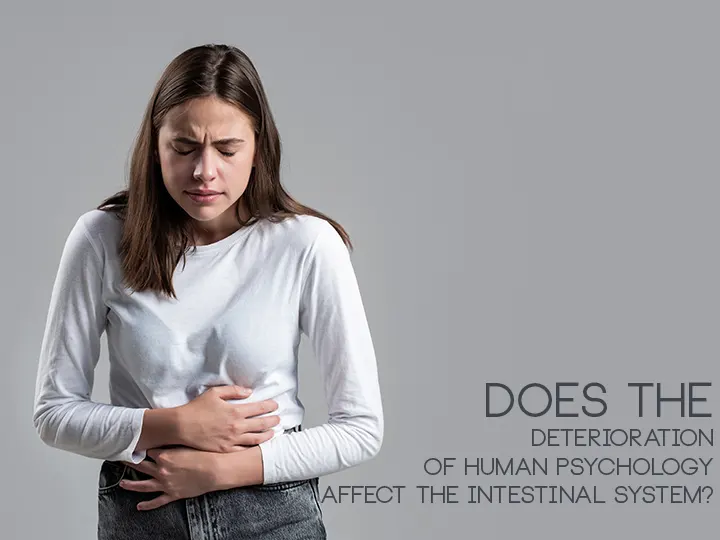
Does The Deterioration Of Human Psychology Affect The İntestinal System?
Yes, the deterioration of human psychology can have a significant impact on the intestinal system.
The relationship between the brain and the gut is complex and interconnected, and is known as the "gut-brain axis."
Stress and anxiety, which can be a result of psychological deterioration, can trigger changes in the gut that lead to symptoms of Irritable Bowel Syndrome (IBS) and other gastrointestinal disorders.
For example, stress can lead to changes in gut motility, the contractions of the muscles in the gut wall that move food through the digestive system, causing symptoms such as abdominal pain, bloating, and diarrhea.
Additionally, psychological factors such as depression and anxiety can lead to changes in the gut microbiome, which is the collection of bacteria and other microorganisms that live in the gut.
This can result in a disrupted balance of bacteria and other microorganisms, leading to further gastrointestinal symptoms.
In conclusion, the deterioration of human psychology can have a significant impact on the intestinal system, and vice versa. The gut-brain axis is complex and intertwined, and changes in one area can lead to changes in the other.
If you are experiencing symptoms that may be related to the gut-brain axis, it is important to see a healthcare provider for a proper evaluation and treatment.
What is IBS?
Irritable Bowel Syndrome (IBS) is a common functional gastrointestinal disorder that affects the large intestine. It is characterized by a group of symptoms including abdominal pain, bloating, gas, constipation, and diarrhea. IBS is a chronic condition, and its symptoms can be recurrent and long-lasting.
The exact cause of IBS is not well understood, but it is thought to be related to a combination of factors such as the interaction between the brain and the gut, stress, and the microbiome.
There are three subtypes of IBS: IBS with constipation (IBS-C), IBS with diarrhea (IBS-D), and IBS with alternating constipation and diarrhea (IBS-M). The diagnosis of IBS is based on the symptoms, as there is no specific test for the condition.
Treatment for IBS is focused on relieving symptoms and improving quality of life. This may include lifestyle changes such as improving dietary habits, reducing stress, and regular exercise. Medications may also be prescribed to help manage specific symptoms, such as antispasmodics for abdominal pain and anti-diarrheal medications for diarrhea.
It is important to see a healthcare provider if you are experiencing symptoms of IBS, as they can help determine the underlying cause and recommend appropriate treatment.
How should a person with IBS eat?
A person with Irritable Bowel Syndrome (IBS) may benefit from certain dietary changes to manage their symptoms. However, what works for one person may not work for another, so it is important to find what works best for you. Here are some general dietary guidelines for people with IBS:
Avoid trigger foods: Common trigger foods for IBS include fatty foods, dairy products, caffeine, alcohol, and certain artificial sweeteners. Keep a food diary to track which foods seem to worsen your symptoms and eliminate them from your diet.
Add fiber: Increasing fiber intake can help relieve constipation, a common symptom of IBS. Try to eat more fruits, vegetables, and whole grains to increase your fiber intake.
Drink plenty of water: Staying hydrated is important for digestive health, especially if you are taking fiber supplements.
Avoid FODMAPs: FODMAPs are short-chain carbohydrates that are poorly absorbed in the gut and can trigger symptoms of IBS. Examples of FODMAPs include fructose, lactose, and fructans. You may want to try a low-FODMAP diet under the guidance of a registered dietitian.
Eat smaller, more frequent meals: Eating large meals can put pressure on the digestive system and trigger symptoms of IBS. Eating smaller, more frequent meals may help prevent symptoms.
Avoid alcohol and caffeine: Alcohol and caffeine can trigger symptoms of IBS, so it may be best to avoid or limit these substances.
It is important to keep in mind that everyone's digestive system is different and what works for one person may not work for another. If you have IBS, it is best to work with a healthcare provider and a registered dietitian to determine a diet that is right for you.